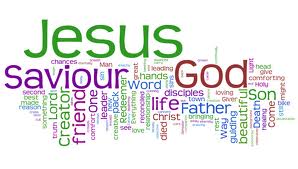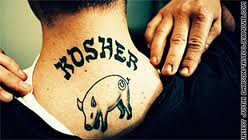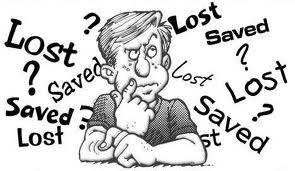THE BOOK OF HEBREWS - CORRECTLY USED
The book of Hebrews is a wonderful letter written to the Jewish believers, probably living in Jerusalem. It declares the glorious divinity of Jesus, His eternal heavenly priesthood on our behalf, the finished work of the Cross, the sufficiency and uniqueness of His blood and the Grace of a new and better Covenant. It is an important letter for us all, in that establishes the replacing of the Old Mosaic Law Covenant by a New Covenant of Jesus’ Grace along with the foundational truth that no other sacrifice except that of Jesus, is effective in dealing with sin.

Heb 1:3 “The Son is the radiance of God's glory and the exact representation of his being, sustaining all things by his powerful word. After he had provided purification for sins, he sat down at the right hand of the Majesty in heaven”.
THE MISUNDERSTANDING OF KEY SCRIPTURES IN HEBREWS
Sadly, some parts of the book of Hebrews have been badly misunderstood and are being widely misused and quoted out of context by those who oppose The Gospel of Grace (Acts.20:24). Therefore, we need to be clear on how to rebuff these arguments that undermine the sufficiency and the finished work of the cross and rob Jesus of His glory. Certain scriptures from Hebrews, quoted in isolation can lead to condemnation, a lack of confidence and a waning assurance in the enduring sufficiency of the Cross. These scriptures need clarification in light of our foundational New Covenant beliefs that we are saved only by grace through faith and not by works (i), that we proclaim the Gospel of Grace (ii), the Spirit of Grace (Heb.10:29) and Jesus’ New Covenant (Heb:10:16-17).
THE BATTLE BETWEEN GRACE AND LAW
Firstly, we must again reiterate that one of the major issues addressed by all the letters of the New Testament was the division in the Early Church between those who believed Jesus' work on the cross to be sufficient for all sin and those that wanted to add Mosaic Law and religious rules to the Cross. Basically the fight was between two opposing camps.... 1) Salvation and living by Jesus' Grace alone. 2) A mixing of Grace and Laws.
This battle arose because the Early Church was made up of two distinct groups, Jews and Gentiles, both of whom had strong but opposing cultures. For more detail on these divisions see the teaching The context of Pauls letters. By the way the battle between Law and Grace still continues today.
THE CONTEXT OF HEBREWS
The first thing that maybe a revelation to many modern Christians is that the letter of Hebrews was written to Jews and not to Gentile – I’m stating the obvious, that’s why it’s called Hebrews. Unlike most of the letters (except James) it was not addressed to a specific church, to an individual believer or to the saints (meaning born again believers) but to Jews of various beliefs with regard to Jesus who were influencing the church in Jerusalem. This is a crucial point to understand as it was written to a specific people, the Jews interested in, or to committed to Jesus, for a specific purpose of bringing them free from the Law, their traditions and the Temple sacrifices. However as I said before it is also an important book for everyone, especially in the African context where many false teachers are mixing Christianity with ancestor veneration and animal sacrifices, just like the Jews of Paul time.
TO JEWS WITH CHRISTIAN LEANINGS
The tone of the book of Hebrews indicates that it is addressed to a mixed bunch who were either Christian or dappling in Christianity. Today there are many Jews who identify themselves as Christians, or with Jesus teachings, and still maintain their Jewish cultural identity. These Jewish background believers as well as Messianic congregations can be found throughout the world. Praise God! The common thread is that they all recognize Jesus as the Jewish Messiah. However as in Paul’s day, within the modern Jewish Christian / Messianic camp there are many different beliefs with regard to what it means to follow Jesus, who Jesus is, what He did on the cross and how this affects a Jews obligation to both Jewish cultural traditions and the Law of Moses.
In Paul’s day, we have shown in the link above, that there was a huge debate going on over these very issues. Even Peter, James and Barnabas, who like Paul all grew up as Jews, fell into error and sometimes even came out against Paul’s “grace only” teaching.
MIXED BELIEFS ABOUT JESUS
Like today, the Jewish “Christians” of Paul’s time had a mixed bag of beliefs about Jesus. Many knew about Jesus, but did not know Jesus as Lord and Savior - they were not “Born Again” (Jn.3:3) and not all were saved despite their interest in Jesus. Even some of his closest disciples did not fully understand who Jesus was and eventually fell away. Here are some of the beliefs the Jews had about Jesus, some of which The Book of Hebrews was correcting.
- Like Moses, Jesus was a powerful and good Jewish Rabbi (teacher) – but nothing more (iii).
- He was the Messiah /Savior that would save Israel from Rome’s occupation and establish the final Messianic Jewish Kingdom (iv).
- He was the prophet Moses had spoken of – but not the Son of God (v).
- He was the Son of God to be worshipped (vi).
- He was the Lamb of God that would take away the sin of the world (vii).
- He was a God given sacrifice to unite Israel (viii)
- A blasphemer and false prophet (ix).
The Jews in Jerusalem were struggling and many had their feet in both camps, Christianity and Legalistic Judaism. Hebrews tries to draw them fully into Christ.
(To give you a taste of what some Messianic Jews believe here is a link to a Messianic fellowship in Israel Shema- what is Messianic Judaism?)
THE JEWISH ISSUES ADDRESSED IN HEBREWS
The general themes of the book of Hebrews are:-
Chapter 1: Jesus was divine and provided a finished atonement for sin (1:3)
Chapter 2: A call for the Jews to pay attention and receive Jesus’ salvation (2:3).
Chapter 3: Jesus is greater than Moses, but the Jews had hardened their heart to the gospel and were still in the sin of unbelief (3:12).
Chapter 4: Like their forefathers were still trying to obtain their righteousness by works (4:10) instead of accepting and resting in the finished work of the cross (Ro.9:31-10:4).
Chapter 5: They were spiritual infants, they did not understand that true righteousness is a gift received by faith (5:13).
Chapter 6: Many of these Jews had heard the gospel and knew the doctrines of Christ and they had seen the Holy Spirit’s miracles. Sadly they still chose Moses Law and the Temple’s animal sacrifices over Jesus' sacrifice. Having known what Jesus had done on the Cross and then rejecting it for another sacrifice, they could not have their minds changed (6:4). To repentant actually means to change one’s mind and actions and this they refused to do, they would not give up their animal sacrifices. They may have followed Jesus as a Rabbi but they would not accept his sacrifice for their sins and therefore were lost - and in fact were never saved in the first place.
Chapter 7: They were still following the Levitical Priests in the Temple and seeking perfection through the Law instead of righteousness though Jesus, our Eternal High Priest in heaven.
Chapter 8: These Jews were being called to let go of the Old Mosaic Covenant and fully embrace Jesus' New Covenant in which their sins are totally forgiven (8:12).
Chapter 9: These Jews were rejecting Jesus' blood sacrifice and still attending the Temple sacrifices (9:12). They were basically claiming that the blood of Jesus was not good enough and they could not enter into Jesus' salvation because they could not let go of the Laws animal sin sacrifices that were so much part of their traditional culture.
Chapter 10: Here the Law is declared as set aside by the New Covenant (10:9). Those Jews who kept sinning through unbelief, despite knowing the good news of Jesus' gospel - cannot be saved (10:26). Anyone rejecting grace and Jesus' blood as sufficient is eternally condemned (10:26-29).
Chapter 11: These Jews are reminded that the father of the Jewish people was Abraham who received righteousness by faith (11:6). Their father was not Moses who taught righteousness by Law - which always failed to produce righteousness.
Chapter 12: The Jews are reminded that the sin of unbelief had always hindered Israel and the Lord had often disciplined and punished them for it (12:5) and yet they still rejected Him (12:14). They were now called to leave the Law given on Mount Sinai and come into the New Covenant through Jesus blood (12:24).
WE CANNOT LOOSE OUR SALVATION IF TRULY SAVED
Hebrews 6:6 and 10:26 are often misquoted to teach that if a Christian backslides or deliberately sins, they lose their salvation. It can be seen that when they are taken in their correct context these scriptures mean neither of these things. Using these scriptures in this incorrect way shows a complete misunderstanding of God’s Grace, righteousness, the work of the cross and how we are saved in the first place. Our salvation is not and never was, conditional on our performance (i) or our self righteousness. Salvation has and will always be God unearned and undeserved gift of God’s love to all who would take hold of it in faith. If salvation is based on our performance then we are all lost (x) because at some point in our lives, if we are honest, we may either backslide or may intentionally sin – without grace, no one is righteous, so if we say we haven’t or won’t then we are deceived and are self righteous.
The parable of the Prodigal son (Luke 15:22) clearly teaches that the Father never lets His sons go, once a son always a son, even if you reject being a son. We may be unfaithful to God but he will never be unfaithful to us. He will never let’s those who are truly saved walk away, it’s no longer our choice. We no longer live but Christ lives in us (xi), we are now an inseparable part of Him. We are sealed eternally by the Holy Spirit (xii).
RESCUED BUT THEN THROWN TO THE SHARKS
Teaching that we can lose our salvation is like a Coast Guard who rescues his own son from drowning only later to throw him back in the sea because he behaves badly or is not grateful enough. Come on, God’s not like that.
So brothers and sisters, be of good cheer and get rid of any doubt that you can lose your salvation, it’s a lie that denies the effectiveness of the Cross and God’s unconditional love. If you are a “back slider” or have deliberately sinned and allowed that to separate you from God, call out to the Father and receive His forgiveness and love once again. He will empower you in grace to hold the course and say no to sin.
Be loved and blessed, Jesus is Lord!
www.gracelovetruth.com
_______________________________________________________________________
THE SCRIPTURAL REFERENCES
(i) Eph 2:8 For it is by grace you have been saved, through faith—and this not from yourselves, it is the gift of God—Eph 2:9 not by works, so that no one can boast.
(ii) Act 20:24 However, I consider my life worth nothing to me, if only I may finish the race and complete the task the Lord Jesus has given me—the task of testifying to the gospel of God's grace. Act 20:25 "Now I know that none of you among whom I have gone about preaching the kingdom will ever see me again.
(iii) Joh.3:2 He came to Jesus at night and said, "Rabbi, we know you are a teacher who has come from God. For no one could perform the miraculous signs you are doing if God were not with him."
(iv) Act 1:6 So when they met together, they asked him, "Lord, are you at this time going to restore the kingdom to Israel?"
(v) Joh 6:66 From this time many of his disciples turned back and no longer followed him.
(vi) Mat 14:33 Then those who were in the boat worshiped him, saying, "Truly you are the Son of God."
(vii) Joh 1:29 The next day John the Baptist saw Jesus coming toward him and said, "Look, the Lamb of God, who takes away the sin of the world!
(viii) Joh 11:49 Then one of them, named Caiaphas, who was high priest that year, spoke up, "You know nothing at all! Joh 11:50 You do not realize that it is better for you that one man die for the people than that the whole nation perish." Joh 11:51 He did not say this on his own, but as high priest that year he prophesied that Jesus would die for the Jewish nation, Joh 11:52 and not only for that nation but also for the scattered children of God, to bring them together and make them one.
(ix) Mat 26:63 Tell us if you are the Christ, the Son of God." Mat 26:64 "Yes, it is as you say," Jesus replied. "But I say to all of you: In the future you will see the Son of Man sitting at the right hand of the Mighty One and coming on the clouds of heaven."Mat 26:65 Then the high priest tore his clothes and said, "He has spoken blasphemy! Why do we need any more witnesses? Look, now you have heard the blasphemy.
(x) Rom 3:9 What shall we conclude then? Are we any better? Not at all! We have already made the charge that Jews and Gentiles alike are all under sin. Rom 3:10 As it is written: "There is no one righteous, not even one.
(xi) Gal 2:20 I have been crucified with Christ and I no longer live, but Christ lives in me. The life I live in the body, I live by faith in the Son of God, who loved me and gave himself for me.
(xii) Eph 1:13 And you also were included in Christ when you heard the word of truth, the gospel of your salvation. Having believed, you were marked in him with a seal, the promised Holy Spirit,








